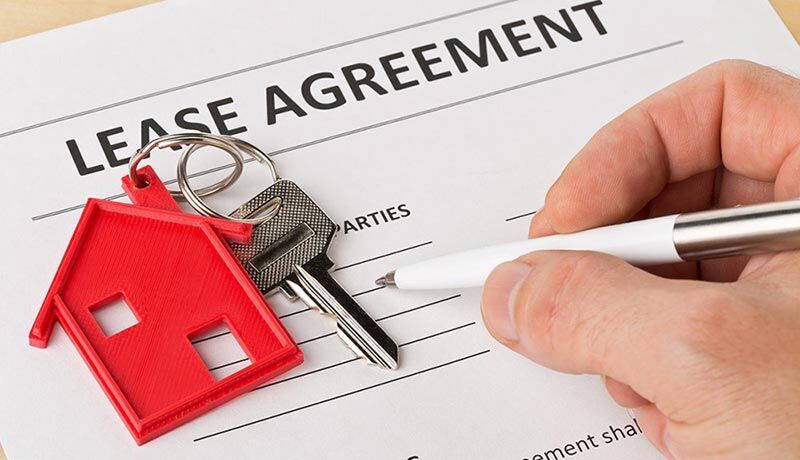The meaning of a lease agreement is often misunderstood in Thailand by foreigners, which is why we are going to have an in-depth analysis of the land lease agreement in Thailand. Such an agreement can be used to hire or rent a property by the lessee from the lessor.
It is essential to note that a Thailand lease agreement for the property does not transfer the ownership of the property from one person to another; instead it only transfers the possession of the property from the lender to the lessee for a fixed period as described in the agreement Thailand.
Now the question arises whether foreigners can register a Thailand lease agreement under Thai law. Yes, foreigners can lease land for up to thirty years in Thailand in a similar way a Thai national does. Now that it is apparent that both foreigners and Thai nationals can register a lease agreement in Thailand, we shall move forward to learn more about lease agreements.
Leasehold Legislation in Thailand
Even though there is no specific leasehold legislation in Thailand, still all the rental agreements in Thailand are referred to as ‘lease’ agreements. In simple words, a lessee is a tenant in Thailand. There has been much confusion about whether the tenants are provided with the same protections or not.
Thailand Lease Agreement Registration
A lease or tenancy agreement that exceeds the duration of three years should be registered with the local land office. However, if a lease agreement is made for a period of fewer than three years, then it need not be registered. Moreover, a lease contract should be registered with the Thailand Land Department within three years of being enforceable as it can help the parties in the future to bring a claim in the court regarding the property concerned in the lease agreement. It must also be noted that a pre-signed lease is not acceptable in Thailand. A lease can only be renewed after its expiration date.
Now you must be wondering what actually goes into a registered lease agreement. The rights of the parties are divided into a registered lease agreement in a written form. A Thailand lease agreement is based on the general principles of contract law and property law. A registered Thailand lease agreement helps in the enforceability of the contractual obligations between the parties to the agreement.
Lease Registration Fee in Thailand
If you plan on getting your lease agreement registered, and don’t know have any clue about the registration fee, then don’t worry as you have come to the right place. A lease registration fee is collected only by the local land officer in Thailand at the rate of one percent of the total rental throughout the lease term. Rental payment can include the following:
- Monetary value for the lease
- Money spent on construction
- Land survey fee
- Other amounts of money paid by the lessee to the lessor for the enjoyment of the benefits of the lease.
In addition to this, stamp duty must be submitted to the Land Department at the rate of 0.1 percent on total rental of the property throughout the lease duration when getting the lease registered.
Leasehold Purchase by a Foreigner

When it comes to a leasehold purchase by a foreigner in Thailand, the most difficult part to deal with is the drafting of the agreement’s terms and conditions. Moreover, it becomes tricky to structure the lease agreement in such a way that provides the best available protections to the foreigner. In order to draft a lease agreement in the best interest of the foreign leaseholder, it would be better to get it drafted by an experienced property lawyer.
Characteristics of Lease and Rental in Thailand
The following are some of the important characteristics of a lease and rental in Thailand that must be kept in mind:
- A lease agreement can only be legally enforceable if it is in written form.
- A lease agreement written in another language for up to three years need not be registered in Thailand.
- A lease agreement that exceeds the three-year term must include a Thai script version attached to it when registering it with the land department.
- A lease agreement can only be registered over land that has a legally issued title deed.
- Registered leasehold cannot be for a term more than 30 years.
- The term of registered leasehold can be renewed.
- The options to renew the agreement are not guaranteed to every party and vary from case to case.
- A property lease gets automatically terminated on the lessee’s death.
- A property lease does not get automatically terminated on the owner’s death.
- A lease agreement has the same effect as a normal tenancy in Thailand.
Conclusion
Lease agreement in Thailand is known to be quite beneficial for foreigners. Foreigners cannot legally own property in Thailand, therefore in order to have a long-term property in Thailand; foreigners can get into a lease agreement. The concept of a lease agreement is similar to that of a rental agreement in Thailand. According to such agreements, the lessor agrees to lend his property to the lessee for a fixed period of time. In return, the lessee has to pay consideration to the lessor as agreed between the parties. In case the term of the agreement is for a short duration, then it is not mandatory for the agreement to be registered.
However, if the lease agreement has been signed between the parties for a long duration, then it is necessary for the parties to get the agreement registered to the Land Department in Thailand to get it legally enforceable. A lease agreement contains all the rights and duties of both parties. On the expiry of the lease agreement, it can be renewed again on the mutual agreement of the concerned parties.
Services of a Thailand Real Estate Lawyer
Siam Legal is a law firm that offers various services that are designed to protect the rights and interests of foreigners wishing to acquire or buy property in Thailand. Our firm offers a wide array of property-related services to best suit our foreign and Thai clients’ property needs. Should you have any property questions or issues that need to be addressed, our team of Thailand lawyers invites you to contact us through the link below:
LIVE SUPPORT
 CALLCall +66 2 254 8900 |  CHATChat with our representative |




































